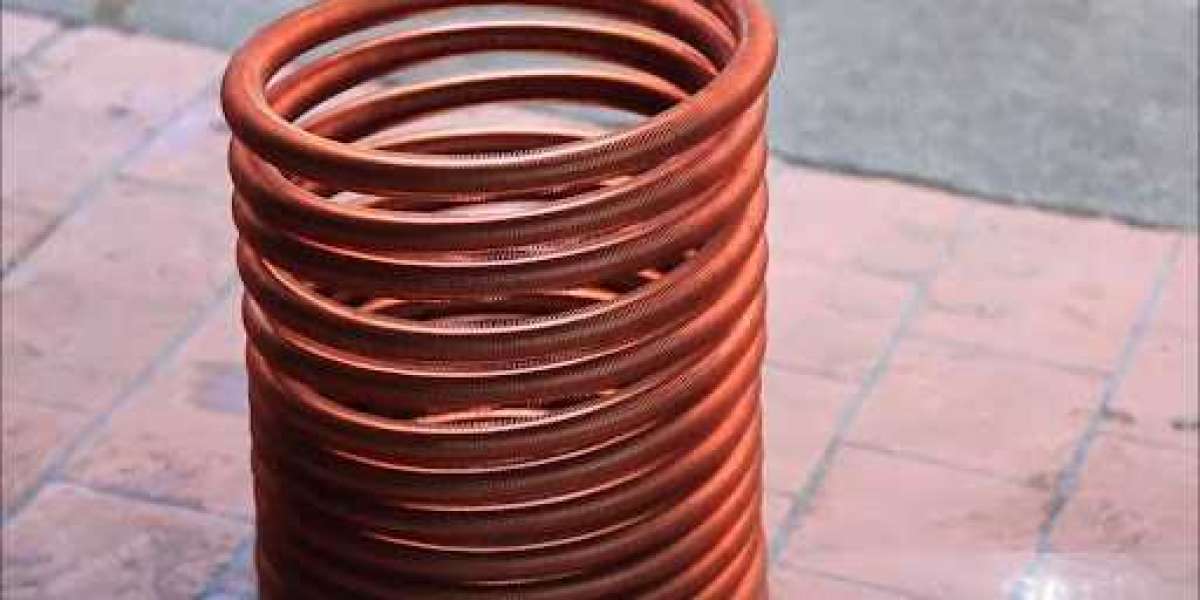In today's eco-conscious world, homeowners are increasingly seeking ways to optimize their energy use and reduce utility costs. One effective solution that has gained attention is the domestic hot water coil.
This innovative component can significantly improve the efficiency of your heating system, ensuring a steady supply of hot water while minimizing energy consumption.
Let's delve into the workings, benefits, and considerations of domestic hot water coils to help you make an informed decision for your home.
What is a Domestic Hot Water Coil?
A domestic hot water coil is a heat exchanger that transfers heat from a boiler or furnace to the water used for domestic purposes, such as bathing, cooking, and cleaning.
Typically installed within a water heater or boiler system, the coil allows water to be heated indirectly by the energy produced by your primary heating source.
This method is more efficient than using a separate water heater and can lead to significant energy savings.
How Does a Domestic Hot Water Coil Work?
The operation of a domestic hot water coil is relatively straightforward. The coil is placed inside a storage tank filled with cold water.
As the boiler or furnace heats the water or steam circulating through the coil, the heat is transferred to the surrounding cold water in the tank. This heated water is then available for household use.
By utilizing the existing heating system, the coil ensures a continuous supply of hot water without the need for additional energy expenditure.
Benefits of Using a Domestic Hot Water Coil
Energy Efficiency
One of the primary advantages of domestic hot water coils is their energy efficiency.
Since the system uses the existing heating source, it reduces the need for separate water heaters, thus lowering overall energy consumption. This efficiency translates to cost savings on utility bills.
Continuous Hot Water Supply
With a domestic hot water coil, you can enjoy a steady and continuous supply of hot water.
This is particularly beneficial for larger households or during peak usage times when the demand for hot water is high.
Space-Saving Design
By integrating the hot water heating process into your existing boiler or furnace system, you eliminate the need for a separate water heater.
This space-saving design is ideal for homes with limited space or those looking to declutter utility areas.
Environmental Impact
Using a domestic hot water coil can contribute to a lower carbon footprint. Reduced energy consumption means fewer greenhouse gas emissions, making it a greener choice for environmentally conscious homeowners.
Considerations Before Installing a Domestic Hot Water Coil
Compatibility
Ensure that your existing boiler or furnace system is compatible with a domestic hot water coil.
Some older systems may require upgrades or modifications to accommodate the coil efficiently.
Installation and Maintenance
Professional installation is crucial for the optimal performance of a domestic hot water coil.
Regular maintenance is also essential to keep the system running smoothly and to extend its lifespan.
Initial Costs
While the long-term savings are significant, the initial installation cost of a domestic hot water coil can be higher than traditional water heaters.
However, the return on investment through reduced energy bills often justifies the upfront expense.
Result
Incorporating a domestic hot water coil into your home's heating system can offer substantial benefits, from enhanced energy efficiency and continuous hot water supply to environmental advantages.
As with any home improvement project, it's essential to assess your specific needs and consult with a professional to ensure the best outcome.
By making the switch to a domestic hot water coil, you can enjoy a more efficient, cost-effective, and eco-friendly hot water solution for your home.
 Meet Ups
Meet Ups
 Experiences
Experiences
 Learning Center
Learning Center
 Accommodation
Accommodation
 Roomie
Roomie
 Ride
Ride
 Spread the Word
Spread the Word
 Student Bazaar
Student Bazaar
 Jobs
Jobs
 Blogs
Blogs
 About StudentInsta
About StudentInsta

